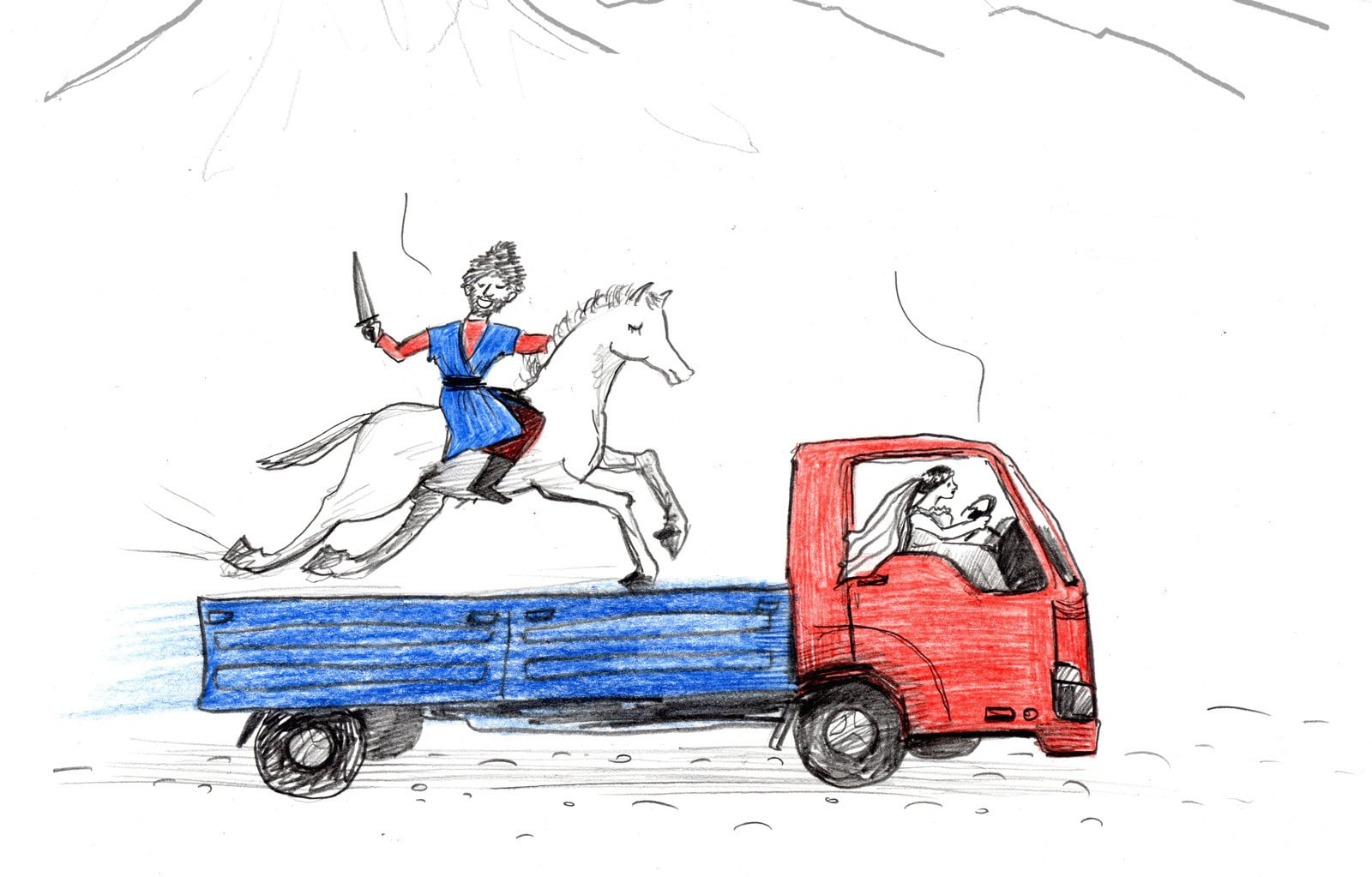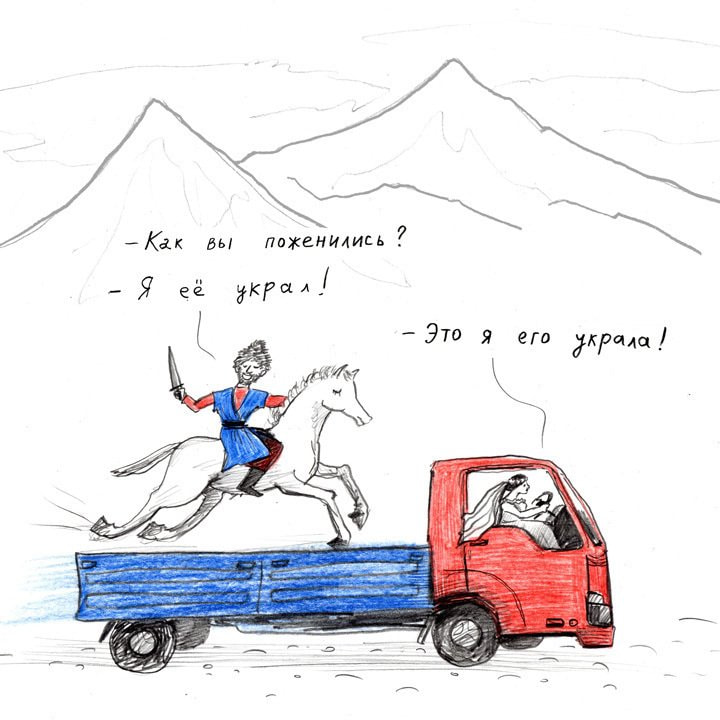Olga Jitlina (b. 1982, Leningrad) is a graphic and performance artist, author of theater spectacles, founder and editor of the Utopian News Agency and of the Nasreddin in Russia newspaper. In 2011, together with co-author, human rights advocate Andrey Yakimov, she created a table game about labor migration called “Russia is the Country of Possibilities”. Since 2014, Jitlina, another artist Anna Tereshkina, a group of labor migrants, and representatives of creative professions have been working on the project Hodja Nasreddin Joke Contest, resulting in the publication of several issues of the newspaper Nasreddin in Russia, and in the realization of the project Mobile Discotheque (the latter co-authored with the Basque artist Jon Irigoyen). Since 2015, Jitlina has been collaborating with the Lampedusa in Hamburg group of refugee activists and opera singer Yulia Averina, bringing them together in the theatrical performance Translation based on Andrey Platonov’s novella Dzhan. Winner of the Henkel Young Artists Prize (2012) and the Lea and Hans Grundig Prize (2015), she lives and works in St. Petersburg.
Anna Tereshkina (b. 1986, Omsk) is an artist, curator, feminist. She graduated from Omsk State Pedagogical University Faculty of Arts in 2008 and entered the School of Engaged Art, St. Petersburg in 2014. Tereshkina works in different media: drawing, collage and artists' book, at times working as an illustrator for friends’ projects, as well as making video and audio projects. Tereshkina is a member of Shvemy sewing cooperative who have participated in a number of group exhibitions and events including: Triennial of Russian Contemporary Art, Garage Museum of Contemporary Art, Moscow (2017); Civic Media Lab Festival, Dnipro, Ukraine (2017); and Media Impact Festival, Moscow (2015–2016). She has had some solo exhibitions, printed artist's books and was illustrator of the project Nasreddin in Russia. (together with Olga Jitlina). She is curator at Egorka Communal Gallery (together with Anastasia Makarenko, St. Petersburg) and in 2015 was one of the curators of Feminist Workshops inspired by Lucy Lippard (together with Anastasia Vepreva and Polina Zaslavskaya, St. Petersburg). She lives and works in St. Petersburg.
Abdumamad Bekmamadov is a musician and construction worker who came to Russia in 1999 from Tajikistan’s Gorno-Badakhshan Autonomous Region. Bekmamadov enrolled in an art institute but had to quit studying in 1991 because of the civil war, although he continued to perform. In 1999, he moved to Moscow where he works on a construction site. For about nine years he didn’t have an opportunity to practice music. In 2010, he resumed a professional career after meeting director Vsevolod Lisovsky, who invited him to participate in his dramatization of the Akyn Opera play. In 2014, he received the Golden Mask Award, and in 2017 became the main protagonist of Anna Moiseenko’s documentary film Songs of Abdul. Bekmamadov continues to combine performance activity with earnings from construction work.
Bermet Borubaeva is a curator, artist, and researcher. She studied Political Science before graduating from the ArtEast School of Contemporary Art (Bishkek) and V-A-C Foundation’s 1st Moscow Curatorial Summer School. Borubaeva has participated in international art projects in Central Asia, Europe, Mexico, and the United States. She has been living in Moscow since 2013, having worked as coordinator of the art residencies program at Fabrika Center for Creative Industries. Author of publications on art, labor, gender equality, and ecology. Until recently, she had worked as a chef in various Moscow cafés. Borubaeva currently runs a column dedicated to the political economy of food production in the Trud (Labor) newspaper and is co-organizer of the group #ФудшерингвБишкеке (#FoodsharinginBishkek).
Chingiz Aidarov (b.1984, Bishkek) graduated from Chuikov Kyrgyz State Art School in 2006. He works with performance, actionism, photography, installation art, painting, sculpture, and graphic arts. Aidarov has lived in Moscow since 2017, working as a freight mover along with making art. He is currently a resident of Garage Studios and Art Residencies.
Zarnigor Omonillaeva (b.1994, Fergana, Republic of Uzbekistan) is a lawyer, human rights activist, and public figure. She moved to Russia in 2013, after enrolling in the Law Faculty of Peoples’ Friendship University of Russia. As a student she began to provide legal assistance to migrants. Omonillaeva founded musofir.ru—an information and legal online resource. Together with other volunteers she organized Tayanch—an Internet project allowing Uzbek speaking migrants to communicate and help each other. Today, the community totals some 65,000 users, including many poets, writers, singers, and other creative migrants. She has translated the fourth issue of the newspaper Nasreddin in Russia into Uzbek.

